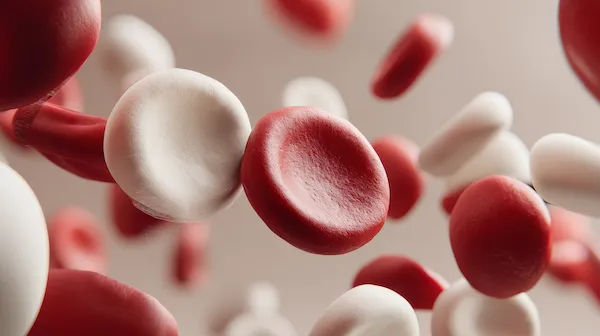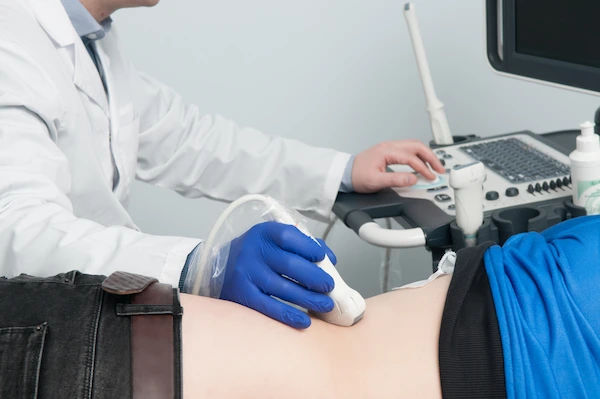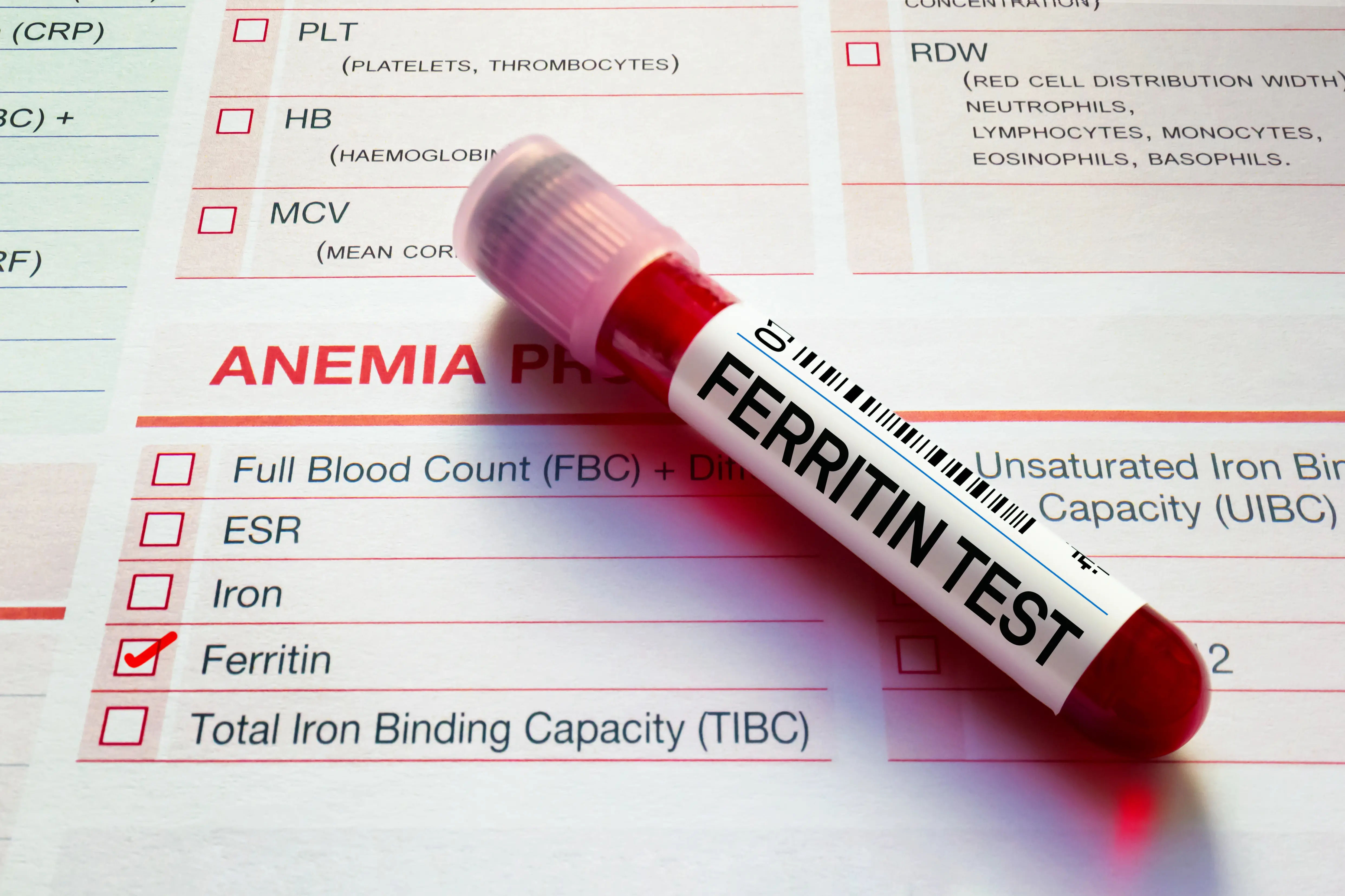Low Sex Drive In Men? These Tests Can Help Diagnose
Low sex drive in men can stem from hormonal or health issues. Discover key diagnostic tests like testosterone, thyroid, and prolactin levels to uncover the root cause.

Written by
Last updated on 17th Jul, 2025
.webp?tr=q-80,f-webp,w-350,dpr-2,c-at_max 700w)
If you've noticed a decline in your interest in sex or feel persistently unmotivated in this area, you may be experiencing low libido. This is a common concern for many men and can affect self-confidence, relationships, and overall quality of life. Although it's especially common in men between the ages of 30 and 60, low sex drive can affect adults of any age and often goes unspoken. While temporary dips in libido can result from stress, poor sleep, or emotional strain, a persistent loss of sexual desire may be a sign of an underlying medical issue. Hormonal imbalances, nutrient deficiencies, or chronic health conditions can all play a role. Dismissing it as just part of ageing could prevent you from addressing a treatable problem.
Fortunately, specific blood tests can offer crucial insights, helping your doctor understand what might be contributing to your low sex drive and guiding you toward an accurate diagnosis and an effective solution for regaining vitality. In this guide, we’ll explore the most important diagnostic tests that can help pinpoint the root cause of low libido and support your journey back to better health.
What Causes Low Sex Drive in Men?
Low sex drive, or decreased libido, in men is characterised by a reduced interest in sexual activity or sexual thoughts. It's a complex issue influenced by a combination of physical, emotional, and lifestyle factors. While sexual desire varies naturally from person to person, a significant and persistent decline can be a symptom of an underlying problem.
Common factors that can contribute to a low sex drive include:
- Chronic stress: Long-term stress can interfere with hormone production, including testosterone, which plays a key role in libido.
- Poor sleep and fatigue: Inadequate rest affects energy, mood, and hormone regulation, all of which are essential for a healthy sex drive.
- Emotional or relationship challenges: Ongoing conflict, lack of intimacy, or unresolved emotional issues can lower desire.
- Mental health conditions: Depression, anxiety, and related concerns frequently reduce interest in sex.
- Lifestyle habits: Excessive alcohol, recreational drug use, and a lack of physical activity may contribute to low libido.
- Medications: Certain prescription drugs, such as antidepressants, blood pressure medications, and opioids, are known to have sexual side effects.
When a low sex drive becomes chronic and doesn't resolve with lifestyle adjustments or addressing obvious psychological factors, it's essential to consider underlying biological conditions. Hormonal imbalances, particularly a drop in testosterone, or issues with other bodily systems, can profoundly affect sexual desire. In such cases, specific blood tests can provide critical insights into these internal imbalances that might be contributing to your low libido.
When to Consider Tests for Low Sex Drive?
If your low sex drive is a persistent concern, especially if it significantly impacts your daily life, relationships, or comes with other concerning symptoms, it's time to talk to your doctor about further investigation, including specific tests. Consider these tests if you experience:
- Persistent Low Desire: If your sex drive has been consistently low for several weeks or months, and it's not improving with basic lifestyle changes.
- Accompanied by Other Symptoms: If your low libido comes with:
Fatigue or a lack of energy.
Changes in mood, such as increased irritability, sadness, or anxiety.
Difficulty with erections or other sexual performance issues.
Unexplained weight gain or loss.
Hair loss or reduced body hair.
Muscle weakness or loss of muscle mass.
Hot flashes or night sweats. - Impact on Well-being: If your diminished sex drive is causing significant distress, affecting your confidence, or straining your relationship.
If any of these sound familiar, discussing specific blood tests and other analyses with your doctor can help pinpoint the exact underlying cause and lead to a more effective, personalised plan for improving your sex drive and overall well-being.
Key Blood Tests That Can Reveal Why Your Sex Drive Is Low
When a persistent low sex drive is a concern, specific blood tests can help your doctor investigate underlying hormonal imbalances or other health conditions. The following blood tests provide valuable insight into those possible causes:
- Total Testosterone: Measures the overall level of testosterone in your bloodstream. This hormone is essential for sex drive, energy, muscle strength, and mood. Low total testosterone may point to hypogonadism, a common medical cause of reduced libido.
- Free Testosterone: Look specifically at the portion of testosterone that is active and available to your body. Some men have normal total testosterone but low free testosterone, which can still cause symptoms of low sex drive.
Book Testosterone Free Test Here
- Sex Hormone–Binding Globulin (SHBG): This protein binds to testosterone and regulates how much is available for the body to use. High SHBG levels can limit active testosterone, even if your total levels are normal.
- Thyroid Function Tests (TSH, Free T3, Free T4): Evaluate how well your thyroid gland is working. An underactive thyroid can lead to fatigue, low mood, and decreased libido. An overactive thyroid can cause anxiety and restlessness that also interfere with sexual desire.
- Cortisol: Measures your stress hormone levels. Chronically high cortisol, often caused by long-term stress or poor sleep, can suppress testosterone production and contribute to fatigue and loss of sexual interest.
- Prolactin: Checks levels of a hormone made by the pituitary gland. High prolactin can reduce testosterone production and may indicate an issue with pituitary function, especially if symptoms include low sex drive and other hormonal changes.
Check Your Prolactin Level Here
- Luteinizing Hormone (LH): Produced by the pituitary gland, LH signals the testes to produce testosterone. Low LH with low testosterone may indicate a problem in the brain’s hormone signalling, while high LH may suggest testicular dysfunction.
- Follicle-Stimulating Hormone (FSH): Also released by the pituitary, FSH helps regulate sperm production. Abnormal FSH levels can point to testicular damage or hormonal imbalance, which may contribute to low libido.
- Fasting Glucose and HbA1c: These tests evaluate how your body processes sugar. Poor blood sugar control can damage nerves and blood vessels, which may impair sexual function and contribute to fatigue and low drive.
- Complete Blood Count (CBC): Gives an overview of your red and white blood cell levels. Anaemia or low haemoglobin can result in reduced energy and stamina, which may contribute to diminished sexual interest.
Your blood test results, along with your symptoms, medical history, and a detailed physical exam, give your doctor a clear idea of what might be causing your low sex drive. With this information, they can develop a focused treatment plan to help restore your energy and boost your libido.
Get These Tests To Get A Yourself Checked up
Get Tested Easily with Apollo 24|7
If your doctor suggests tests to help understand the root cause of your low sex drive, choosing a trusted and convenient testing provider is important. Apollo 24|7 makes the process simple by offering a wide range of reliable lab tests with quick and accurate results. This helps you and your doctor get the information needed to uncover any underlying issues and create a plan to support your sexual health.
Here’s why Apollo 24|7 is a smart choice for getting tested:
- Comprehensive Test Panels: Apollo 24|7 facilitates access to a broad spectrum of diagnostic tests directly relevant to low libido, including crucial panels like the Testosterone Level Blood Test, Thyroid Function Tests, and Cortisol & Stress Markers.
- NABL-Accredited Labs: Tests are conducted in high-quality labs certified by the National Accreditation Board for Testing and Calibration Laboratories (NABL), ensuring trusted accuracy and reliability for your results.
- Home Sample Collection: No need to travel; get blood samples collected conveniently from your home at a time that suits you, offering privacy and comfort.
- Easy Online Booking: Book your tests effortlessly through the user-friendly Apollo 24|7 app or website with just a few clicks.
- Fast Digital Reports: Receive secure, detailed reports swiftly online, delivered directly to your device, ready for your doctor to review.
- Trusted Brand: Benefit from the trusted expertise and healthcare legacy of Apollo Hospitals Group, one of India’s most respected medical networks.
When you choose Apollo 24|7, you get access to trusted, high-quality diagnostic services that make it easier to understand and manage the possible causes of low sex drive. It’s a convenient and reliable step toward getting the answers you need.
Conclusion
A reduced sex drive is more than just a natural part of ageing or a reflection of stress. In many cases, it can be an important signal that your body is experiencing underlying health concerns, such as hormonal imbalances, thyroid dysfunction, or chronic stress, that are affecting your overall well-being.
Ignoring these changes or turning to short-term fixes without identifying the root cause may delay effective treatment. Comprehensive blood tests, including those that measure testosterone levels, evaluate thyroid function, and assess stress-related hormones like cortisol, can offer valuable insights. These tests help your doctor better understand what may be contributing to your symptoms.
Getting a clear diagnosis is the first step toward restoring your sexual health, energy, and quality of life. If this is something you’re struggling with, talk to your doctor about whether these tests may help guide your care.





.webp)

